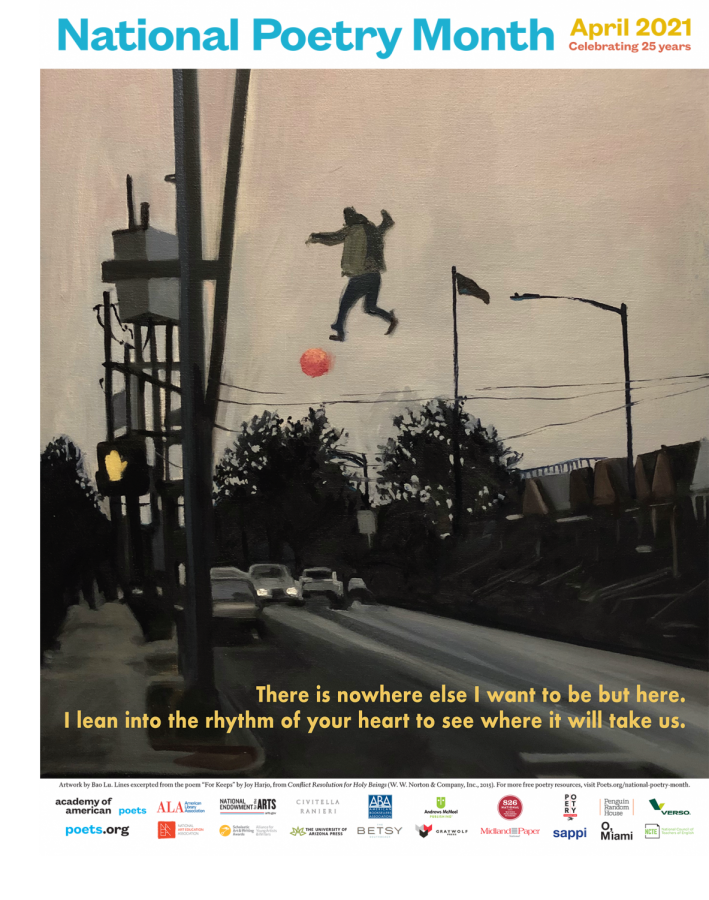An Ode to National Poetry Month
April 9, 2021
The power of words has soothed this world for generations. Whether through song or by page, the poem is a traditional manifestation of this power and has been used to both sway crowds and build culture. National Poetry Month, which is celebrated every April, is a way to remind us of the significance of poetry.
Defined as a form of literature that manipulates language in order to evoke deeper meanings beyond what is written, poetry really cannot be held to one definition for it can be a three word phrase, an eight stanza rap song, or a thousand line epic. It’s theorized that poetry has existed since the caveman days while it can be assumed that the form will continue to live until the end of human civilization itself.
Reading poetry is largely about how it makes one feel, with a specific emphasis placed on the emotions that the words convey. Poetry can inspire a whole nation as Amanda Gorman’s “The Hill We Climb” did at the 2021 presidential inauguration; poetry can soothe as Emily Dickinson’s “Hope is the thing with feathers”; and poetry can illuminate the ignored as Danez Smith’s “dear white america” does with its jarring directness. And still, poetry has and can do so much more.
In efforts to recognize and celebrate the contributions and roles of poetry and poets in society, the Academy of American Poets designated April as National Poetry Month in 1996. Over the years, National Poetry Month has grown to become “the largest literary celebration in the world” according to the Academy’s website. Through a variety of initiatives, activities, and readings created to educate and promote the importance of poetry to the public, the Academy and other literary organizations have worked to help others have access to poems and the inspiration to write one.
Whether giving out poetry assignments as a teacher or enjoying a sonnet or two as a reader, there is no one way to celebrate poetry. Besides, engaging in the words of Joy Harjo and Carmen Giménez Smith doesn’t have to be limited to just thirty days. If allowed, poetry can be wielded to be anything anyone wants it to be, whether for them or for the world. As Yone Noguchi wrote, “Ah, where is the man who lives out of / himself?—the poet inspired often to / chronicle these / things?”
For more information on other ways to celebrate, check out https://poets.org/national-poetry-month.













































